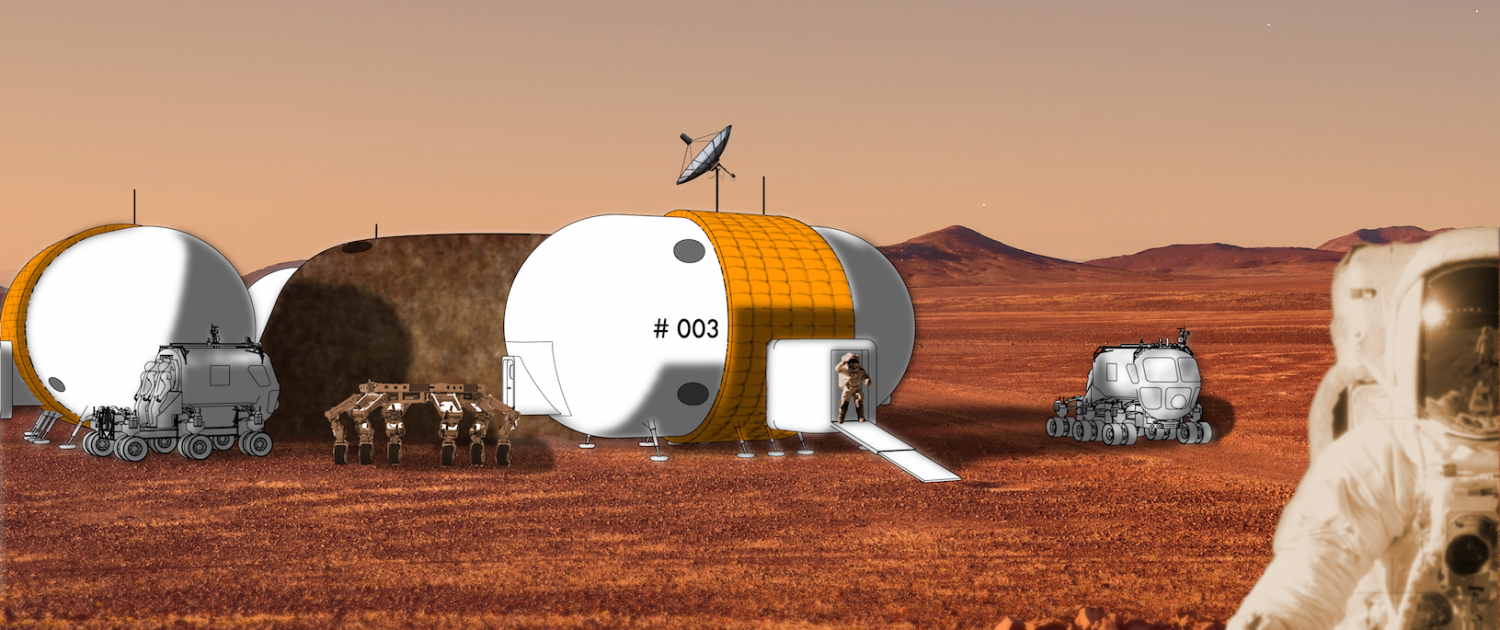IN SITU – Design of a Self-Sufficient Human Settlement on Mars
Human colonization of Mars seems to be the next obvious peak of human exploratory instinct. As Mars is so distant from Earth (shipment of supplies etc. take more than 6 months) and to minimize the Earth launch burden (which will reduce the cost), extraction and processing of Martian materials is necessary. In situ resource utilization (ISRU) will be essential in supplying settlers not only with propellant and life support, but also with a large variety of construction material. Metals and glass, for instance, could be produced from minerals prevalent in the Martian surface. The author’s design for a Martian colony suggests that initially an elementary surface base delivered from Earth should be set up. As soon as viability of the base and its production facilities are secured, the expansion with in situ resources would start. Reacting to the users’ needs and the environment, the settlement would be evolving continuously to provide optimum living and working conditions. For enduring performance of the base, a very adaptable structure will be necessary to incorporate development with growth. The design recommends complete resource efficiency. The presented work comprises the design of a human settlement on Mars that utilizes local resources and energy to grow and achieve increasing self-sufficiency.
Project Year
2015
Team Members
Student: Marlies Arnhof (Vienna University of Technology)
Supervisor: Sandra Häuplik-Meusburger (Vienna University of Technology)
Credits
All images/ drawings/ sketches renderings were created by the author


